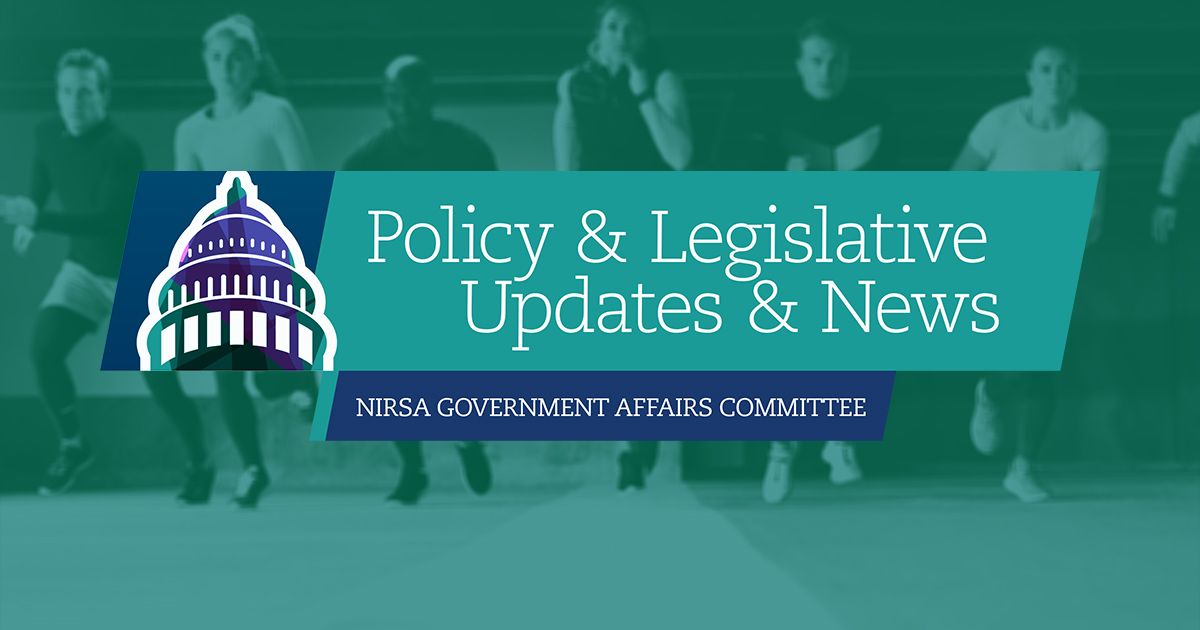Recently, NIRSA’s Government Affairs Committee brought to the attention of the NIRSA Board of Directors the increasing number of bills being introduced into state legislatures regarding transgender athletes’ participation in sports. These bills are now being considered in at least 30 US state legislatures, including multiple bills in some states. At the time of writing, four states have passed bills with another 52 under some level of consideration.
We are highlighting these bills for the NIRSA membership because the possible outcomes of the legislative efforts include short and long-term impacts for collegiate recreation, as well as their incongruence with our values. Higher education, and specifically intramural sports and sport clubs, are specified in many of the bills; this could reshape the ability of current college students to participate in sport-based programs. With the widespread nature of these efforts, even if your state is not currently considering a similar bill, a state in your region may be, thereby impacting regional competition for sport club teams.
In the long term, restricting access to sport and recreation for K-12 athletes means fewer young people starting their journeys towards the active lifestyles that our field immensely values and supports. We must remember that today’s young athletes are collegiate recreation’s future students, future athletes, and future participants.
The NIRSA Board of Directors wants to affirm our values as an association. We believe that inclusive access to sport is an important part of NIRSA’s vision of building healthy people and healthy communities. Inclusive access must include people of all gender identities.
The NIRSA Championship Series created its Transgender Athlete Participation Policy in 2014, which “empowers students to participate in intramural sports and sport club divisions based on their expressed gender identity.” The Championship Series leadership has reviewed the policy several times since its initial adoption. Since 2014 the policy has effectively upheld our values of inclusion and fair play.
Creating fairness in sport competitions has been an ever-evolving pursuit. We know many governing bodies are discussing these bills, particularly as they impact the highest level of competition in their sport. Organizations like USA Rugby have updated their policy in accordance with the International Olympic Committee. Others, like USA Track and Field or USA Cycling, are differentiating their rules for “elite” athletes and those that are “recreational.” We know the actions and decisions of these NGBs may impact your sport club teams and encourage you to follow them closely.
We want to emphasize that NIRSA opposes any legislation or policy in the collegiate club or intramural realm that bans transgender individuals from participating in accordance with their gender identity.
When determining where NIRSA national championships are held, NIRSA policy already directs that only locations where hosts can commit to providing an environment of sports integrity – one that is safe, inclusive, and free from discrimination – should be selected. Equity, diversity, and inclusion are active processes that require continuous commitment to promote healthy people and healthy communities. As such, we will continue to closely monitor these situations to determine where NIRSA national championships can be conducted in ways that align with our statement for Equity, Diversity, and Inclusion.
The Government Affairs Committee will continue to monitor the issue in accordance with NIRSA’s policy agenda and strive to keep members informed. In addition to their recent Ideas in Motion roundtable, be on the lookout for an upcoming three-part article series tracking the developments of this legislation.
Some additional resources, if you would like to start learning more, include:
- NIRSA’s Policy Pages – follow this weekly update to track developments (of this issue and others related to higher ed) in your state and nationally
- Monitor these bills state by state using legislative trackers such as those by Freedom for All Americans or the ACLU
- This recent NPR interview with Dr. Eric Vilain, a pediatrician and geneticist who studies sex differences in athletes, provides insight into the science surrounding trans athletes’ participation
- For more information, please contact a member of NIRSA’s Government Affairs Committee.
Craig Decker, RCRSP, is currently the Director at Centers LLC at the University of Alabama at Birmingham. Craig is also the 2020-2021 Chair of the NIRSA Member Network; you can email him at craigd@uab.edu.
Learn about the NIRSA Board of Directors here.
Pam Watts is Executive Director of NIRSA: Leaders in Collegiate Recreation, headquartered in Corvallis, Oregon. Pam is a Certified Association Executive and she can be reached at Pam.Watts@nirsa.org










